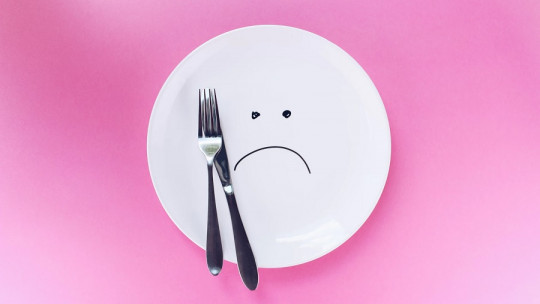
Throughout life, we will face all kinds of emotional and physical problems. Some will be more difficult than others, but we have to assume that, in their resolution, in most cases, the responsibility will fall on us and our ability to find other supports or solutions. However, it is not always easy to face all types of situations, and on many occasions we develop maladaptive strategies that only make the situation worse.
Resorting to emotional escape with food involves using food as a way to deal with emotional tensions and challenges. Instead of directly addressing negative emotions or stress, some people find temporary comfort in food, turning it into an escape mechanism. This behavior can manifest itself in various ways, from impulsive binge eating to choosing comfort foods (candy, sweets, fried convenience foods, junk food…regardless of calories) in times of distress.
It is crucial to consider the underlying factors that contribute to this phenomenon. Social pressures, everyday stress, emotional blocks, anxiety can be significant triggers.
We live in a fast-paced and competitive society, where constant expectations and demands can overwhelm people, leading them to seek refuge in food as a way to find momentary relief. The problem is created when this way of acting becomes a habit.
Why does food emerge as an emotional escape?
Taken by the social habits of everything to immediacy, we want to cover the need to cover that internal pain which causes us anxiety and we mask it by eating, because while we eat for a while we forget about the problem, stress or anxiety; finding that time of emotional emptiness and instant pleasure with food.
In this article, we are going to reflect on what they are the reasons that lead us to turn to food as an emotional escape when facing psychological problems or challenges. It is important to understand this behavior as a maladaptive strategy that will probably have a long-term negative impact on our health and well-being.
The interrelationship between emotional escape and eating reveals a network of complex factors that influence our daily choices. To further understand this phenomenon, it is essential to analyze how stress, family and social pressures, as well as psychological factors, contribute to the use of food as an emotional escape.
There was the first time we felt like food evaded us from emotional pain and we unconsciously continued to use it. Is it bad? No, if it happens only once, the problem is when we make it a habit.
What covers each bite?
1. Situational and everyday factors
Everyday stress, omnipresent in contemporary society, emerges as a significant catalyst. Work demands, family responsibilities, and social expectations can generate overwhelming tensions, leading some people to seek comfort in food. The act of eating becomes a momentary escape valve, providing a temporary distraction from daily worries and anxieties. Food, in this context, becomes a comforting refuge that offers a sense of control in the midst of emotional chaos.
2. Psychological and personal factors
Likewise, factors derived from psychology itself play a crucial role in the connection between emotions and eating. Anxiety and depression, fear of speaking, for example, can trigger the desire to turn to comfort foods as a form of emotional self-medication. Additionally, low self-esteem greatly influences the relationship people have with food, as they seek comfort and validation in excessive eating or unhealthy food choices.
3. Differential impact between people
However, it is essential to recognize that Emotional escape through food is not a universal phenomenon and its manifestation varies from person to person. Some people may resort to occasional binge eating during times of acute anxiety or stress, while for others, this behavior may become a constant and worrying pattern.
What effects does this behavior have on health?
Emotional escape through food not only has emotional implications, but also leaves a significant mark on the physical and mental health of those who adopt this pattern of behavior. Exploring the consequences of this phenomenon is essential to understand the importance of addressing the relationship between emotions and eating.
1. Physical health
From a physical perspective, emotional escape can lead to a number of health problems. Excessive consumption of foods rich in fats and sugars during episodes of emotional escape can contribute to weight gain, obesity-related problems. The latter, in turn, is linked to medical conditions such as type 2 diabetes, heart disease and metabolic disorders.
2. Mental health
Furthermore, the impact on mental health should not be underestimated. Emotional escape through food can become a harmful cycle, where temporary relief is followed by feelings of guilt, shame, emotional discomfort, self-incrimination, devaluation. This fuels anxiety and depression, creating a vicious cycle that is difficult to break on one’s own.
3. Lack of self – attention and perception
The relationship between emotional escape and health also manifests itself in a lack of attention to the body’s natural signals. Emotional eating can disconnect people from hunger and satiety cues, leading them to ignore the body’s actual nutritional needs and instead focus on immediate emotional needs.
Food covers up what you don’t dare to say, eliminate, heal.
Healthy alternatives
To deal with emotional escape through food, It is crucial to develop strategies that promote mental and nutritional health. Emotional awareness stands as a fundamental tool: recognizing and understanding underlying emotions allows us to face them directly.
The importance of social support cannot be underestimated; Sharing experiences with loved ones or professionals provides valuable perspectives. Additionally, establishing mindful eating habits by planning balanced and nutritious meals can contribute to a healthier relationship with food. Cognitive behavioral therapy also emerges as an effective option, addressing negative thought patterns.
On the whole, These strategies offer a holistic approach, empowering people to manage their emotions in a healthy way and build a more balanced connection with food. In the conclusion, we will reinforce the importance of integrating these practices to forge a path to lasting well-being.
Conclusions
At the crossroads between emotions and eating, it is essential to recognize emotional escape as a real challenge. By understanding its complexities and exploring healthy alternatives, we can transform this negative pattern into an opportunity for personal growth. Emotional awareness, social support and the adoption of conscious eating habits are presented as powerful tools. By taking steps toward a more balanced relationship with food, we open the door to holistic and lasting well-being.








